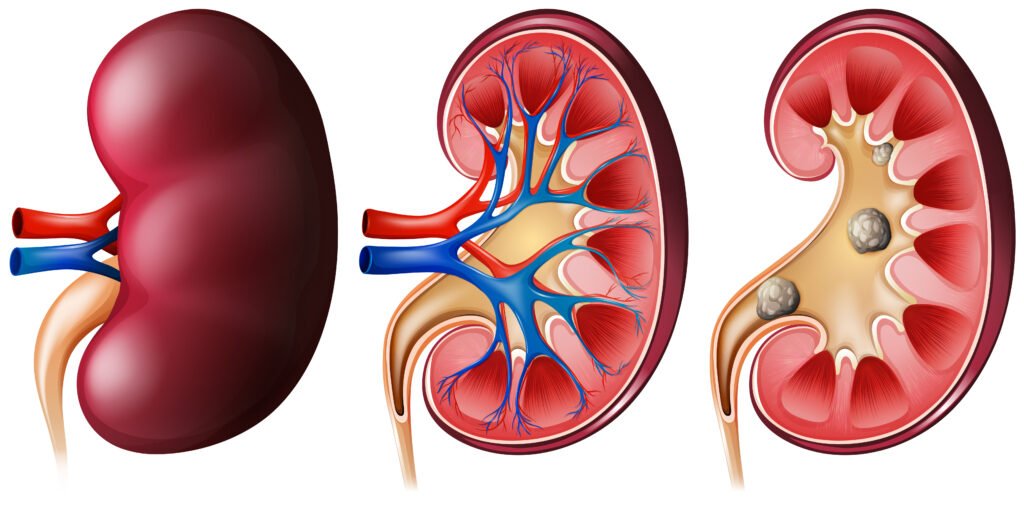Kidney stones are hard deposits made of minerals and salts that form inside your kidneys. They can vary in size, from as small as a grain of sand to as large as a golf ball. When stones are small, they might pass out of the body without causing much harm. Larger stones, however, can get stuck in the urinary tract, causing pain and other complications.

Kidney stones form when your urine contains too many crystals that can turn into stones. Factors that can increase your risk of developing kidney stones include:
Symptoms of kidney stones can include:
Treatment depends on the size and type of the stone:
If you suspect you have kidney stones or have any symptoms, it’s important to consult a healthcare professional for diagnosis and appropriate treatment.
At Vardan Hospital,, we understand that kidney stones can be a painful and stressful experience. Our team of expert urologists is dedicated to providing the best care, tailored to your specific needs. Here’s why you should choose us for your kidney stone treatment:
Our doctors are highly trained in diagnosing and treating all types of kidney stones, using the latest techniques and technology.
We believe that every patient is unique. Our specialists will work with you to create a treatment plan that fits your lifestyle and needs.
We offer a range of minimally invasive treatments, reducing recovery times and improving outcomes.
We offer a range of minimally invasive treatments, reducing recovery times and improving outcomes.
We are committed to making your experience as comfortable and stress-free as possible, with a focus on patient education and emotional support.

If you’re experiencing symptoms of kidney stones or want to learn more about your treatment options, don’t wait. Book your consultation with our expert urologists today. We’re here to help you find relief and improve your health!
Call us at +91 88504 57921 or schedule an appointment online at www.vardaanspecialityhospital.com.
+91 88504 57921
vardaanspecialityhospital@gmail.com
Saurabh CHS, Sabnis Hospital, Dr, VB Phadake Rd, Gavanpada, Mulund East, Mumbai, Maharashtra 400081
Saurabh CHS, Ground Floor, Dr. VB Phadake Rd, Gavanpada, Mulund East, Mumbai, Maharashtra 400081